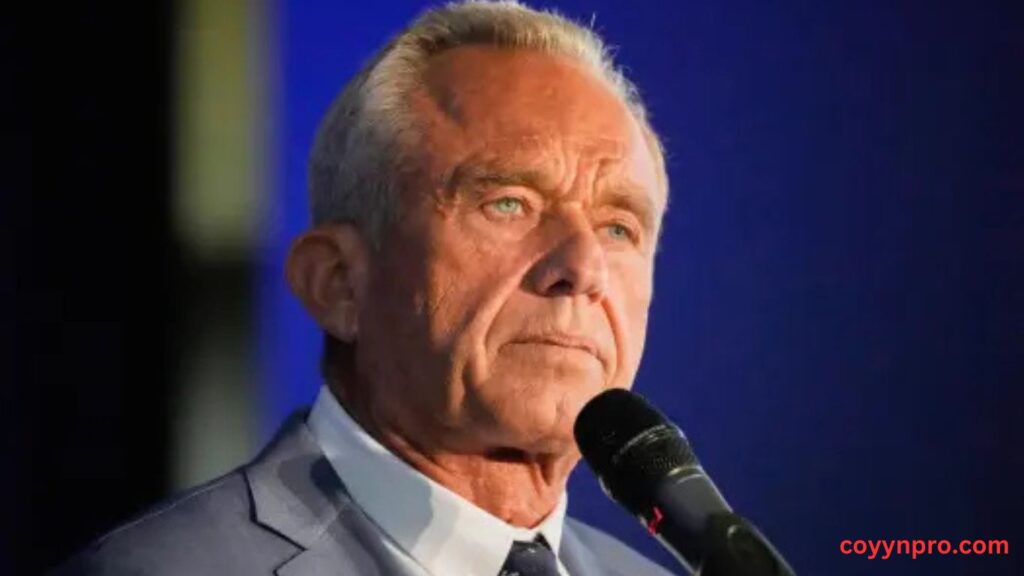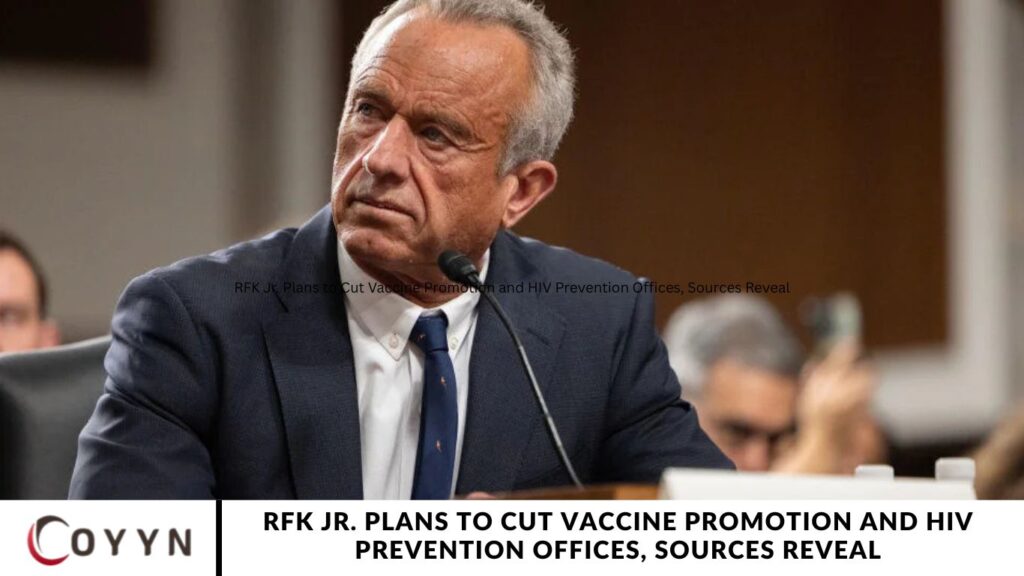Multiple federal health officials revealed to CBS News on Friday that Health and Human Services (HHS) Secretary Robert F. Kennedy Jr. is planning a major restructuring of the federal government’s health agencies, including cutting approximately 20,000 HHS positions. Among the significant changes, the Office of Infectious Disease and HIV/AIDS Policy (OIDP), which has played a central role in vaccine promotion and HIV prevention efforts, is set to lose its entire staff.
The move is part of Kennedy’s broader overhaul of the department. OIDP, which has overseen initiatives such as the “Let’s Get Real” vaccination campaign, designed to address vaccine hesitancy and promote childhood immunizations, is expected to be dissolved. The campaign, launched during the final months of the Biden administration, provided resources for healthcare providers to educate parents on vaccine safety and efficacy.
Additionally, sources confirmed that the Office of Minority Health, responsible for addressing health disparities, is also slated for elimination as part of the cuts.
Despite these reports, official written layoff notices have yet to be issued to HHS employees. Senior officials initially expected these notices to go out Friday afternoon. Still, they indicated that delays might push them into the weekend, similar to earlier cuts to probationary HHS workers during the Trump administration.
The OIDP, which was led by the Assistant Secretary for Health (OASH), employed approximately 60 staff members at the end of the Biden administration. These cuts come amid efforts to consolidate OASH agencies into a new HHS entity, the Administration for Health America (AHA), under the current restructuring plan.

One key initiative managed by OIDP, the National Vaccine Program, has coordinated efforts to ensure vaccine safety, development, and accessibility. The program’s future remains uncertain, as does the fate of the Ending the HIV Epidemic in the U.S. initiative, launched by President Trump in his first term, for which Congress had already allocated funding.
It is also unclear whether other offices overseen by former Assistant Secretary for Health Rachel Levine, such as the office responsible for updating federal dietary guidelines, will face similar cuts. The office had been criticized under Kennedy’s “Make America Health Again” agenda.
As part of the restructuring, the Substance Abuse and Mental Health Services Administration (SAMHSA) and the Health Resources and Services Administration (HRSA) are expected to be absorbed into the new AHA agency. Currently, it is unclear who will permanently lead AHA, though Thomas Engels, HRSA’s administrator, is expected to take the helm in the interim.
Kennedy’s team has indicated a rapid timeline for launching AHA, with some operational goals expected to be completed within the next 10 days. HHS did not immediately respond to requests for comment regarding the potential layoffs or restructuring details.
Frequently Asked Questions
What offices are being cut under RFK Jr.’s restructuring plan?
RFK Jr.’s restructuring plan includes eliminating the Office of Infectious Disease and HIV/AIDS Policy (OIDP) and the Office of Minority Health. These offices were responsible for key health initiatives like vaccine promotion and HIV prevention.
Why are these offices being eliminated?
The cuts are part of a broader restructuring of the Department of Health and Human Services (HHS), which aims to streamline operations and reduce the number of federal positions. Plans are to cut 20,000 HHS roles.
What was the role of the Office of Infectious Disease and HIV/AIDS Policy (OIDP)?
OIDP managed important programs such as the National Vaccine Program, which coordinated vaccine development and safety efforts, and the Ending the HIV Epidemic in the U.S. initiative, which aimed to reduce HIV transmission across the country.
How will this restructuring affect the National Vaccine Program?
The future of the National Vaccine Program, which OIDP managed, is uncertain. The program was crucial in increasing vaccine accessibility and safety, and it’s unclear how or if these efforts will continue after the office’s closure.
What was the ‘Let’s Get Real’ vaccination campaign?
The “Let’s Get Real” campaign, launched during the final months of the Biden administration, was designed to combat vaccine hesitancy by providing healthcare providers with resources to educate parents about vaccine safety and effectiveness.
Will other health initiatives also be affected by these cuts?
Yes, initiatives like the Ending the HIV Epidemic program, which had received funding from Congress, may also be impacted by the closure of OIDP. The fate of other health programs overseen by HHS is still uncertain.
When will the layoffs take place?
Although sources indicated that the layoffs were imminent, official written notices had not been issued as of the latest reports. Senior officials had hoped to send the notices by Friday afternoon, though delays are possible.
Conclusion
RFK Jr.’s decision to cut the Office of Infectious Disease and HIV/AIDS Policy (OIDP) and the Office of Minority Health marks a significant shift in the structure of the Department of Health and Human Services (HHS). These cuts, part of a broader plan to reduce 20,000 positions within HHS, will have far-reaching effects on public health initiatives, particularly in vaccine promotion and HIV prevention.
While the future of programs like the National Vaccine Program and the Ending the HIV Epidemic initiative remains uncertain, the formation of the new Administration for a Health America (AHA) aims to consolidate these efforts into a streamlined agency. The swift timeline for this restructuring underscores the urgency with which RFK Jr.’s administration intends to implement changes. However, many details, including leadership and the fate of various health programs, are still to be determined. As the restructuring progresses, the long-term impact on public health policy and services will become more apparent.


